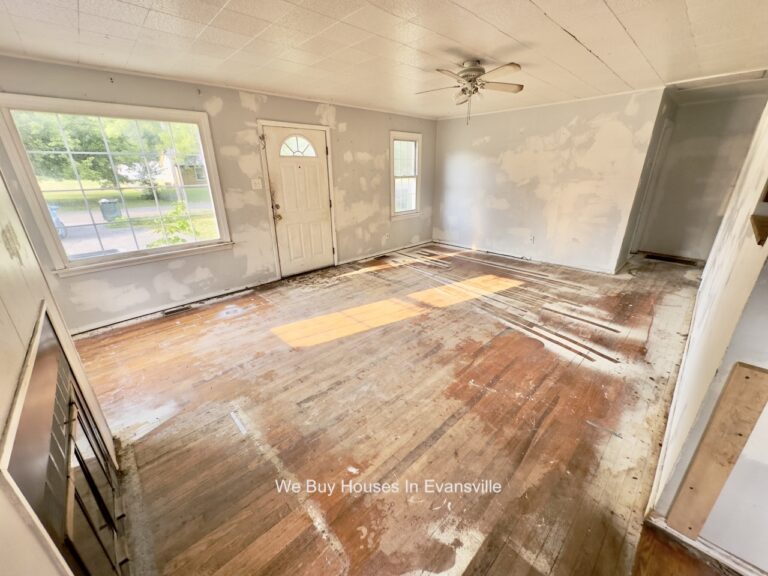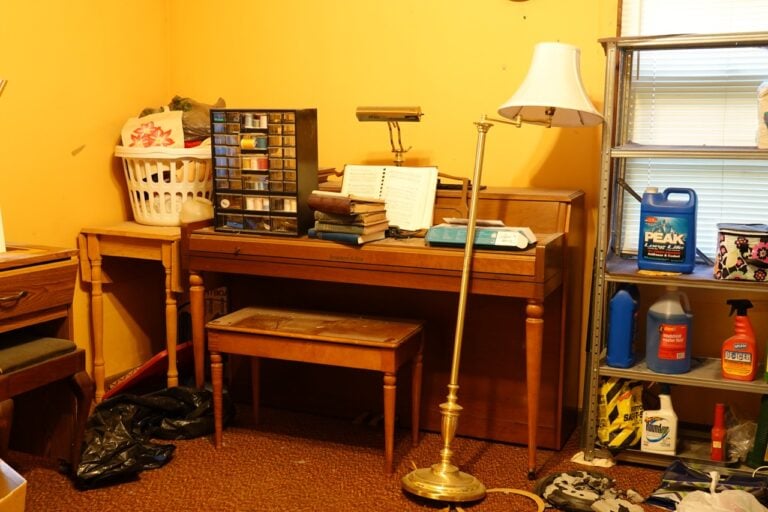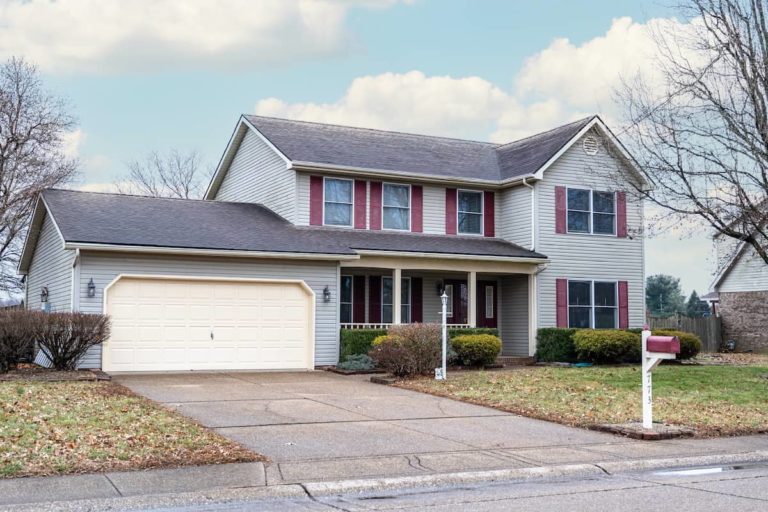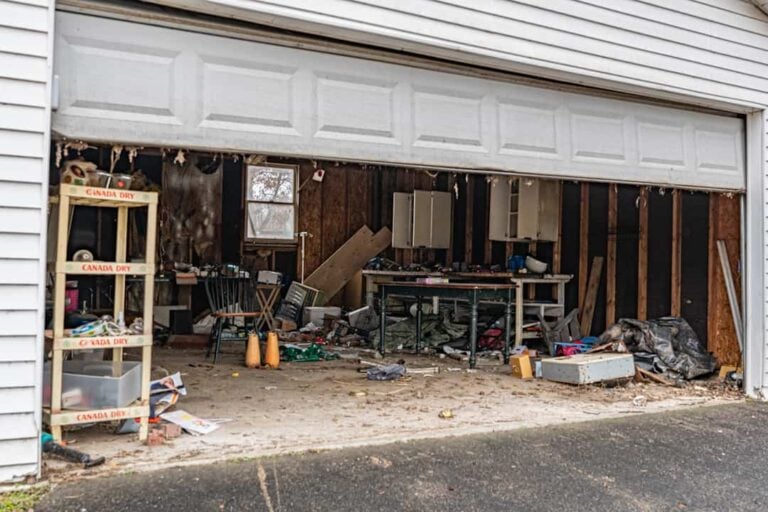Inheriting a house can be a difficult and emotional experience. Not only does the property now belong to you, but if you are the sole heir, you will need to shoulder the financial responsibility for the property. In the event there are multiple beneficiaries, it’s important to discuss and agree on what to do with the inherited property to avoid potential conflicts. Before making any decisions, it is essential to seek legal guidance from a tax attorney to navigate the legal process of transferring the property to your name.
What happens when you inherit a house?
The process of inheriting a house can be a complex one. If you’re the sole heir, you’ll need to transfer the property to your name legally. You may also need to pay estate taxes and capital gains taxes on the inherited property.
If you’re one of several heirs, you must decide collectively what to do with the inherited property to avoid potential conflicts. It’s essential to consult with an attorney and tax professional to ensure you’re following the legal and financial requirements.
Is it better to keep or sell an inherited house?
Making the decision of whether to keep or sell an inherited house depends on your unique circumstances. It’s essential to consider factors such as your financial status, current housing needs, and emotional attachment to the property.
Keeping the home can be beneficial. With its benefits, you’ll need to consider the payment for ongoing maintenance, repairs, property taxes, and utilities.
If you don’t have a motivating use for the property, it may be better to sell the house and use the proceeds to pay off debts, invest, or distribute the inheritance among several heirs.
Selling or keeping an inherited house is a significant decision. If you’ve inherited a property in Evansville, Indiana, and you’re wondering what to do with it before deciding to keep or sell it, follow these expert tips.

Check Your Insurance Coverage
One of the first things you should do is check your homeowner’s insurance coverage. Ensure the coverage is active but also effective for more extreme claims such as potential natural disasters or fires. It is essential to take this step to avoid any unexpected financial losses.
If the house has been vacant for more than 30 days, you also may need to purchase an unoccupied and vacant home insurance policy to avoid claim denial.
Secure Your House
Empty homes are vulnerable to theft and vandalism. To protect your property, replace broken windows, secure loose doors, and change the locks. You can also ask a trusted neighbor to monitor the house or request regular drive-bys from the local police department.
Pay Past Due Bills
It’s very important to pay any outstanding property taxes, HOA dues, or utility bills to avoid accruing interest, late fees, and service interruptions. Failure to do so can lead to legal problems, additional fees, and even foreclosure.
Get a Home Inspection
Before deciding whether to move in, rent out, or sell the inherited house, get a property inspection. The inspection may reveal deferred maintenance issues and hidden repair problems. If there are minor issues, you may consider making these repairs yourself. If there are significant problems, it is highly recommended to hire a professional contractor to complete these repairs.
Should You Move In, Rent Out, or Sell the Inherited House in Evansville, Indiana?

Moving In
If you have inherited a home without a mortgage or have the financial ability to pay off an existing mortgage, moving into the home in this scenario can be a practical choice. Living in the house would allow you to build equity over time and save on monthly mortgage or rent payments.
Renting Out
If you already own a home and could use a means of additional income, renting out the house could be a good option. It would be encouraged to research the local rental market and prepare a thorough lease agreement. It’s also very important to be sure all the family members who will be paying the rent, sign the lease. To avoid poor quality tenants, perform due diligence by verifying employment, contacting previous landlords, and performing credit and criminal background checks.
Selling
If you need to distribute the inheritance among several heirs, do not have the money or time to repair the property, or do not want the risk of troublesome tenants, selling the house may be the best choice. Selling through a real estate agent involves a lot of work, but you can also sell your inherited house for cash to a reputable home-buying company like Comfort Homes.
How much can you inherit without paying federal taxes?
As of 2023, the federal government does not impose an inheritance tax on inherited property. However, if you’re the executor of the estate or the beneficiary, you may need to pay estate taxes if the estate’s value exceeds $12.06 million.
Does the IRS need to know about inheritance?
As of 2023, the IRS does not require you to report the receipt of an inheritance on your federal income tax return. However, if you inherit property and sell it, you may need to pay capital gains taxes on the sale. The amount of taxes owed depends on the property’s value at the time of inheritance and the sale price.
Is it better to gift or inherit property?
Whether it is better to gift or inherit property depends on your specific circumstances. If the person gifting the property has a high net worth, they may face gift taxes. On the other hand, if the recipient inherits the property, they may need to pay capital gains taxes on the sale of the property.
In some cases, it may be beneficial to gift property during the giver’s lifetime to minimize estate taxes. However, it’s essential to consult with an attorney and tax professional to determine the best course of action.
What is considered a large inheritance?
A large inheritance is subjective and depends on your financial situation and needs. For some people, receiving $10,000 may be a significant windfall, while others may consider $1 million a large inheritance.
How are capital gains calculated on the sale of inherited property?
The capital gains tax on the sale of inherited property is calculated by subtracting the property’s fair market value at the time of inheritance from the sale price. The resulting amount is the capital gain, and you may owe taxes on that amount. The capital gains tax rate depends on your income and other factors.
How do you determine the fair market value of an inherited property?
To determine the fair market value of an inherited property, you can hire an appraiser or use online valuation tools. An appraiser will consider factors such as the property’s location, size, condition, and recent sales of similar properties in the area.
What is the holding period for an inherited property?
There is no holding period for inherited property. However, if you sell the inherited property within a year of the original owner’s death, you may be subject to short-term capital gains taxes. If you hold the property for more than a year, you’ll be subject to long-term capital gains taxes, which are usually lower.
Do I have to report the sale of inherited property to the IRS?
If you sell an inherited property, you may need to report the sale to the IRS on your tax return. You’ll need to report the sale price and the cost basis of the property, which is typically the fair market value of the property at the time of inheritance. Depending on the sale price and your income level, you may owe capital gains taxes on the sale.
In conclusion, inheriting a house in Evansville, Indiana can be a very involved process. It’s essential to seek legal and financial guidance to ensure you’re following the legal requirements and making informed decisions. Whether you decide to keep, rent, or sell the inherited property, it’s beneficial to take steps to protect your investment and avoid any unexpected financial losses. By following these expert tips and consulting with professionals, you can make the best decisions for your circumstances and ensure a smooth and stress-free inheritance process.
How to Sell a House in Evansville, Indiana
If you live in Evansville, Indiana and you do decide to sell a home, you can anticipate it being an elaborate process. With proper guidance though, you can ensure that it will be a smooth and successful occurrence. Here are some tips on how to sell a house in Evansville, Indiana:
- Price your home competitively: Do your research and find out what similar homes in your area are selling for. Set a reasonable price for your property to attract potential buyers.
- Stage your home: Make your home look its best by decluttering, cleaning, and staging the house. A well-staged home can help buyers visualize themselves living in the space.
- Hire a real estate agent: A local real estate agent can help you navigate the complex process of selling your home, from setting the right price to negotiating with potential buyers.
- List your home online: In today’s digital age, most buyers search for homes online. Make sure your home is listed on popular real estate websites and social media platforms.
- Show your home: Make your home available for showings, even on short notice. The more showings you have, the better chance you have of finding the right buyer.
- Negotiate with buyers: Once you receive an offer, negotiate with the buyer to reach a mutually agreeable price and terms.
By following these tips and working with a reputable real estate agent, you can sell your house in Evansville, Indiana with confidence. Don’t want all the hassle? Sell your house to Comfort Homes in as little as 5 days.
Sell Your Inherited House to Comfort Homes
If your inherited house in Vanderburgh County, Indiana requires repairs or you want to avoid the hassle of selling your home through an agent, call Comfort Homes; we buy houses in Evansville. Comfort Homes can provide you with a fast and hassle-free solution to sell your inherited property.
We offer a fair cash price for your home and buy it as-is, so you don’t need to make any repairs or renovations. You can also avoid the hassle of showing your property to potential buyers or dealing with banks and real estate agents. We can close in as fast as 5 days or on your timeline, so you can move on with your life.
We understand that selling an inherited house can be a challenging and emotional process, and we are committed to making the experience as easy and stress-free as possible.
Contact us today to get a no-obligation cash offer for your inherited house in Evansville, Indiana.








